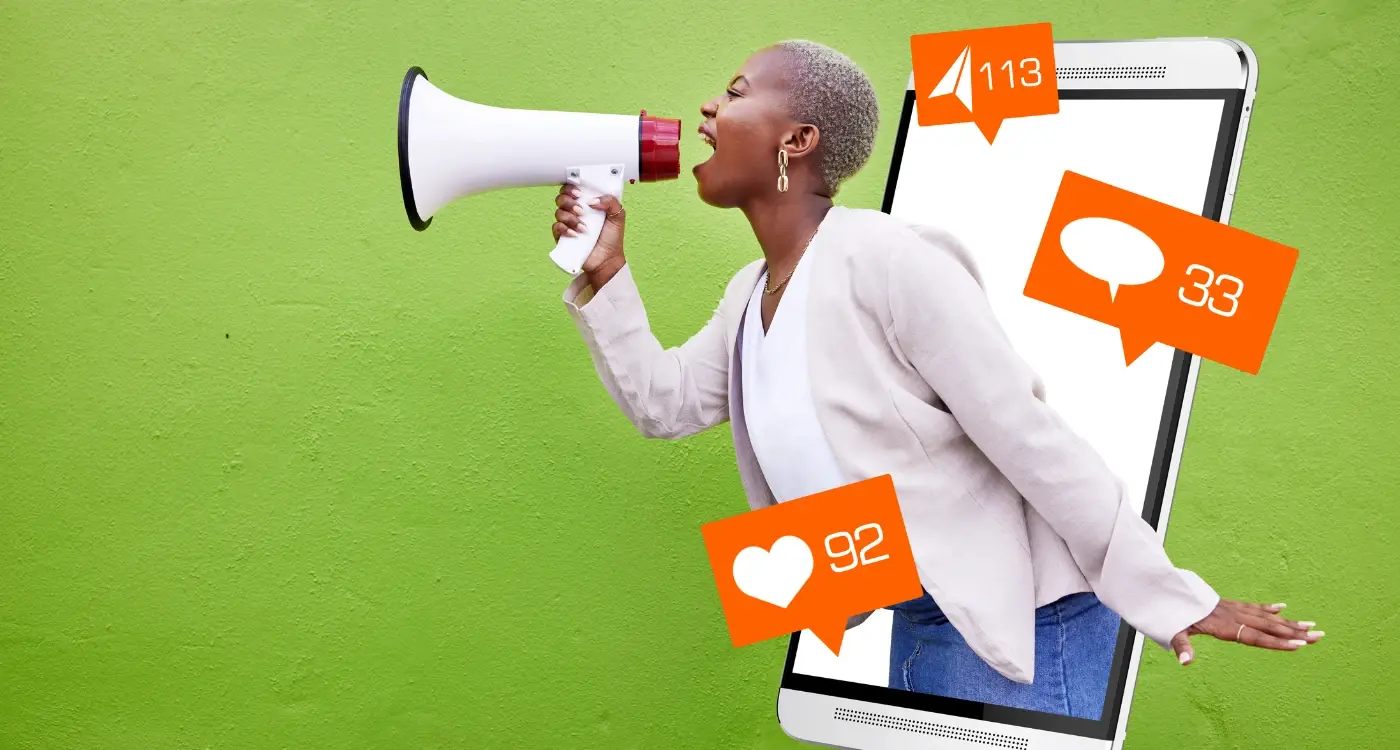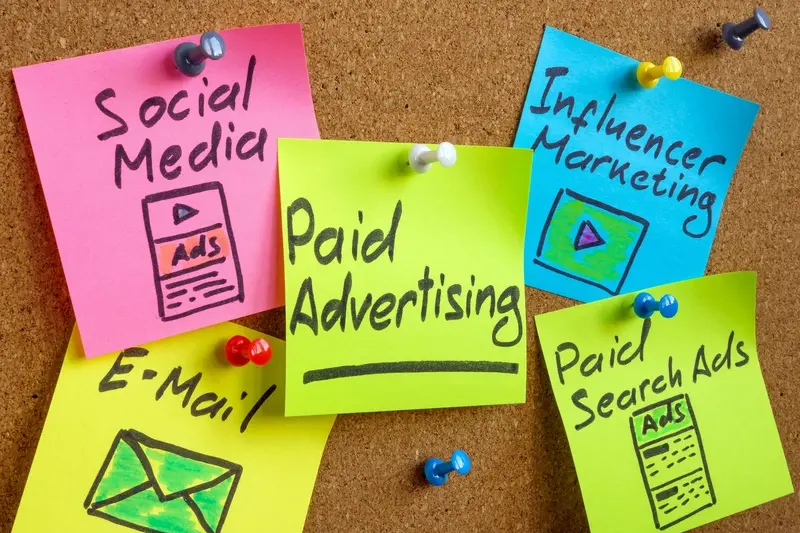How Do I Use Social Media to Promote My App?
Alright, let's talk social media for your app! The digital playground has become a non-negotiable battlefield for anyone launching an app. I've seen countless brilliant apps fail simply because nobody knew they existed—a tragedy that's completely avoidable with proper social media strategy. Getting your app noticed among millions of others isn't just about posting random content and hoping for the best; it requires planning, consistency and understanding what makes your target audience tick.
Social media offers something traditional marketing channels can't: direct communication with potential users. You can gather feedback, build excitement, and create a community around your app before it even launches. With over 4 billion social media users worldwide, these platforms give you incredible reach at a fraction of traditional advertising costs. The magic happens when you stop treating social media as just another advertising channel and start using it to tell your app's story—why you built it, what problems it solves, and who'll benefit from it.
Social media isn't just about promoting your app; it's about building relationships with the people who will love using it
Throughout this guide, we'll walk through everything from finding your app's unique social media voice to selecting the right platforms, creating content that resonates, leveraging paid advertising, and measuring your success. I've seen firsthand what works—and what definitely doesn't—across hundreds of app launches. The strategies we'll cover have helped our clients achieve download numbers they never thought possible, and they'll work for you too. Let's turn your app into the next social media success story, shall we?
Understanding Your App's Social Media Identity
Before we can start posting on social media to promote our app, we need to figure out who we are online—this is what I call your app's social media identity. Think of it as your app's personality; how it talks, what it shares, and how it connects with people. In my experience working with all sorts of apps, the ones that succeed on social media know exactly who they are and who they're talking to.
Your social media identity isn't just about posting screenshots of your app (though that's part of it). It's about the tone you use, the colours in your graphics, and even how you respond to comments. Are you fun and playful? Professional and helpful? The choice depends on what your app does and who will use it. I've seen banking apps try to be too jokey and gaming apps being overly serious—both missed the mark completely!
Key Elements of Your App's Social Media Identity
- Visual style: colours, fonts, and image types that match your app
- Voice and tone: how you write captions and respond to users
- Content themes: what topics you regularly post about
- Posting frequency: how often you share content
- Community approach: how you interact with followers
Spend time getting this right from the start. I can't count how many times I've seen app creators change their social media identity halfway through a campaign—it confuses people and wastes all the work you've done building recognition. Your identity should feel like a natural extension of the app itself; when users switch between your social profiles and your app, they shouldn't feel like they're dealing with two different brands.
Choosing the Right Social Media Platforms for Your App
Not all social media platforms are created equal when it comes to app promotion. I've seen countless clients waste time and money trying to maintain a presence on every platform—it just doesn't work! Each social channel has its own unique audience, content style and engagement patterns that might or might not align with your app's target users.
Match Platforms to Your Audience
If you're launching a professional networking app, LinkedIn is your obvious first choice; for a photo editing app, Instagram makes perfect sense. TikTok works brilliantly for apps targeting Gen Z, while Facebook still dominates for broader demographics and community building. Look at where your potential users already spend their time—that's where you need to be! Pinterest excels for visually-driven lifestyle apps, and Twitter/X can be great for apps with timely content or customer service components.
Don't spread yourself too thin! It's much better to excel on 2-3 platforms that match your audience perfectly than to perform poorly across all of them.
Consider Platform Features
Each platform offers different promotional tools—Instagram and Facebook have seamless app install ads; TikTok brings incredible viral potential; YouTube allows detailed tutorials. Think about what aspects of your app you need to showcase. Does it have visual appeal that works on Instagram? Is there a learning curve that needs YouTube explainers? Does it solve a problem you can demonstrate in short TikTok videos? The right platforms aren't just where your users are—they're where your app's strengths can shine.
Building a Pre-Launch Social Media Strategy
Getting your social media ducks in a row before your app launches can make the difference between a splash and a flop. I've seen countless app launches where developers wait until the last minute to consider social—trust me, that's a mistake you don't want to make! Starting your social media campaign 3-4 months before launch gives you time to build an audience that's actually excited about your app.
Creating Anticipation
Start by teasing your app with sneak peeks; behind-the-scenes videos of your team working on features; or screenshots that hint at what's coming. People love feeling like insiders. Create a launch countdown that gives small reveals along the way—maybe it's showing off your app icon one day and a key feature the next. And don't be afraid to share your journey! The ups and downs of app development make for engaging content that humanises your brand.
Building Your Community
Use this pre-launch period to gather emails and build a following that's genuinely interested in what you're creating. Running a beta test? Share the sign-up on social and make those early testers feel special. They'll become your most vocal supporters if you treat them right. I always recommend creating a hashtag specific to your app—it gives users a way to connect and helps you track conversations. The best part about starting early is you've got time to adjust your messaging based on what resonates with your audience. If something isn't working, you can pivot without the pressure of an already-launched product hanging over your head.
Creating Engaging Content for App Promotion
Content is king when it comes to social media app marketing! I've worked with dozens of app developers who struggled to get traction until they sorted their content strategy. The truth is, people don't want to see endless "download our app" posts—they want content that entertains, educates or solves problems. Your social posts need to showcase your app's personality and benefits without being too salesy.
Start by identifying your app's unique value proposition and create content themes around it. If you've built a fitness app, mix workout tips with user success stories and behind-the-scenes glimpses of your team. Use a variety of formats too—images grab attention, videos demonstrate features, and carousels can explain complex concepts. Don't forget to make your content interactive; polls, questions and challenges encourage engagement and build community—this is exactly what the algorithms reward!
Social media isn't just a promotional channel, it's where you build relationships with users who become advocates for your app.
Content Calendar Essentials
Consistency beats perfection every time. Create a simple content calendar that mixes promotional posts (20%) with value-adding content (80%). Schedule posts when your audience is most active—not when it's convenient for you! And always leave room for spontaneity; some of our clients' most successful posts have been quick responses to trending topics or user questions. Remember to test different approaches and track what resonates—data should drive your content strategy, not just gut feeling.
Paid Social Media Advertising for Apps
When your app is ready to make some noise, paid social media ads can be a proper game-changer. I've seen countless apps struggle with organic reach only to take off once they put a bit of money behind their promotion. Facebook, Instagram, TikTok, Twitter—they all offer targeted advertising that lets you reach potential users based on their interests, behaviours and demographics. It's brilliant because you're not just throwing money into the void; you're putting your app in front of people who are likely to actually want it.
Choosing Your Platform
Not all social platforms will work for your app. For instance, if you've built a professional networking app, LinkedIn might give you better results than TikTok. Think about where your ideal users hang out and start there. And don't blow your entire budget on one platform! Test small amounts across different networks, measure what works, then scale up the winners.
- Facebook & Instagram: Best for detailed targeting and retargeting campaigns
- TikTok: Excellent for apps targeting younger audiences
- Twitter: Good for time-sensitive promotions and tech-savvy audiences
- LinkedIn: Perfect for business and professional apps
- Snapchat: Great for apps with strong visual appeal to Gen Z
Tracking Your Success
The real power of paid social is in the data. Make sure you've set up proper tracking—install the relevant pixels and SDKs so you can see exactly what's happening after someone clicks your ad. Are they installing? Are they signing up? Are they actually using the app? Without this information, you're just guessing. Trust me, I've wasted thousands on beautifully designed ads that did absolutely nothing for downloads because I wasn't tracking the right metrics.
Measuring and Analysing Social Media App Performance
When you're promoting your app on social media, tracking performance isn't just nice to have—it's absolutely necessary. I've seen plenty of app developers pour money into social campaigns without checking if they're actually working! Measuring your results lets you see what's connecting with potential users and what's falling flat. This doesn't have to be complicated, but it does need to be consistent.
Key Metrics Worth Tracking
For most app marketers, certain numbers matter more than others. The trick is figuring out which ones truly impact your app growth. Basic engagement metrics like likes and shares are a start, but downloads, user retention, and cost per acquisition tell a much deeper story about your social media app marketing effectiveness.
- Impressions and reach (how many people saw your content)
- Engagement rate (likes, comments, shares divided by impressions)
- Click-through rate to app store page
- App installs from social channels
- Cost per acquisition (CPA)
- User lifetime value (LTV)
Most social platforms offer native analytics tools—they're not perfect but give you a good starting point. For serious app growth tracking, consider using dedicated mobile attribution tools that connect social media performance directly to app installs and user behaviour. This gives you the full picture of your app marketing campaigns from first impression to active user.
Set up UTM parameters for each social platform and campaign to track exactly where your app installs are coming from—this simple step will make your analysis infinitely more valuable!
Leveraging Social Media Influencers for App Growth
I've worked with dozens of app launches over the years, and I can tell you that influencer partnerships can be absolute game-changers when done right. Social media influencers already have what you're desperately seeking—attention and trust from your target audience. These people have spent years building relationships with their followers; relationships you can tap into to get your app noticed.
Finding the Right Influencers
Don't just chase big numbers! A beauty influencer with millions of followers won't help your productivity app one bit. Look for influencers whose audience matches your ideal users. Micro-influencers (those with 10,000-50,000 followers) often have more engaged audiences and cost less than celebrities. I once worked with a fitness app that partnered with 15 micro-influencers instead of one major celebrity—the downloads were 3x what we expected because the audience fit was spot-on.
Creating Authentic Partnerships
The best influencer campaigns don't feel like ads at all. Give influencers creative freedom to showcase your app in a way that feels natural to their content style. And please, let them actually use your app before promoting it! Nothing kills credibility faster than an influencer who clearly doesn't understand the product they're recommending. I've seen brilliant campaigns where influencers documented their genuine experience with an app over several weeks—showing real results and honest feedback. This approach builds trust and generates much higher-quality downloads from users who actually stick around.
Conclusion
Social media marketing isn't a one-time event—it's an ongoing journey that requires patience, creativity and consistent effort. The platforms may change, algorithms might shift, but the core principle remains: connecting with your users in meaningful ways drives app growth. I've seen too many developers pour their hearts into building brilliant apps only to fall at the final hurdle because they didn't give their social media strategy the attention it deserved.
From defining your app's social identity to selecting the right platforms, creating engaging content, running paid campaigns and measuring performance—each element plays a critical role in your app's success story. Don't forget the power of influencers too; they can amplify your message in ways traditional advertising simply cannot match. The beauty of social media for app promotion is that it's incredibly flexible. You can start small, test what works, and scale up as you learn what resonates with your audience.
Remember that building a community around your app is just as valuable as acquiring new users. Social media gives you the perfect opportunity to listen to feedback, address concerns and celebrate successes with your users—making them feel like valued members of your app family. So take what you've learned from this guide and apply it with purpose. Your app deserves to be discovered, and with the right social media approach, it will be.
Share this
Subscribe To Our Learning Centre
You May Also Like
These Related Guides

How Do I Market My Mobile App?

Which Influencers Should I Choose to Promote My New App?



